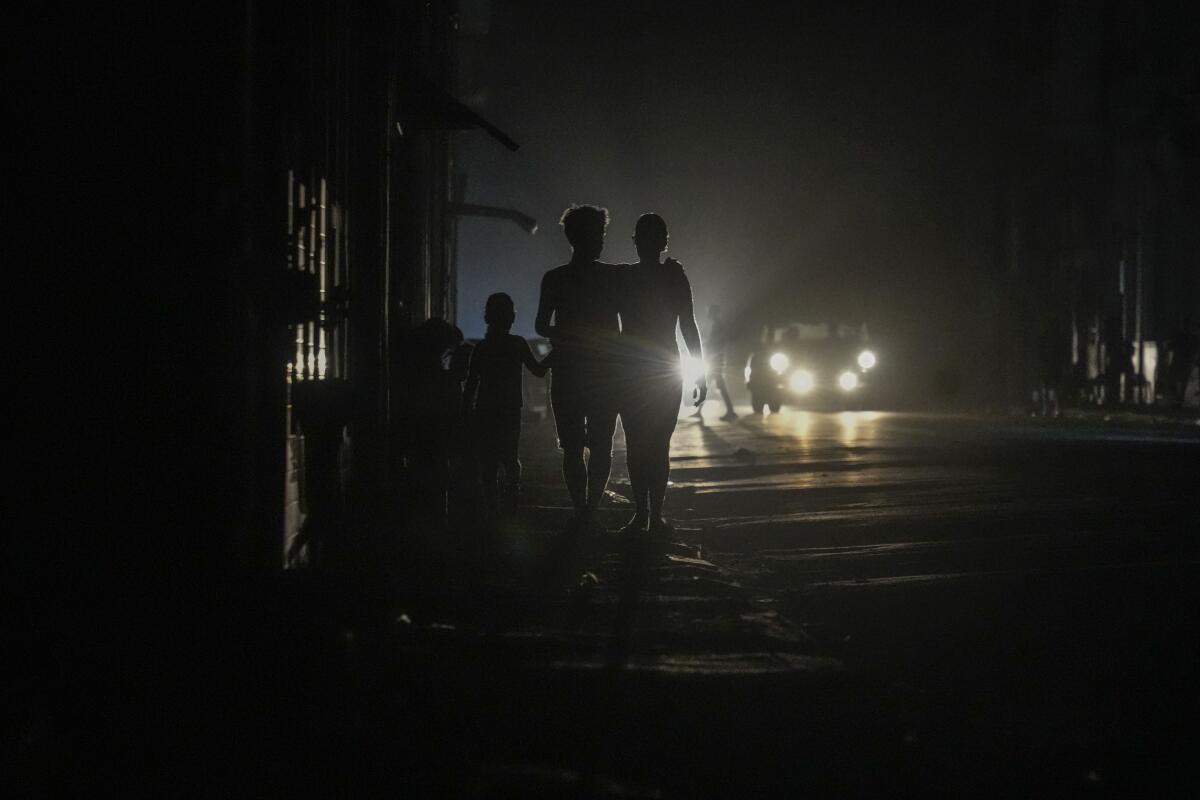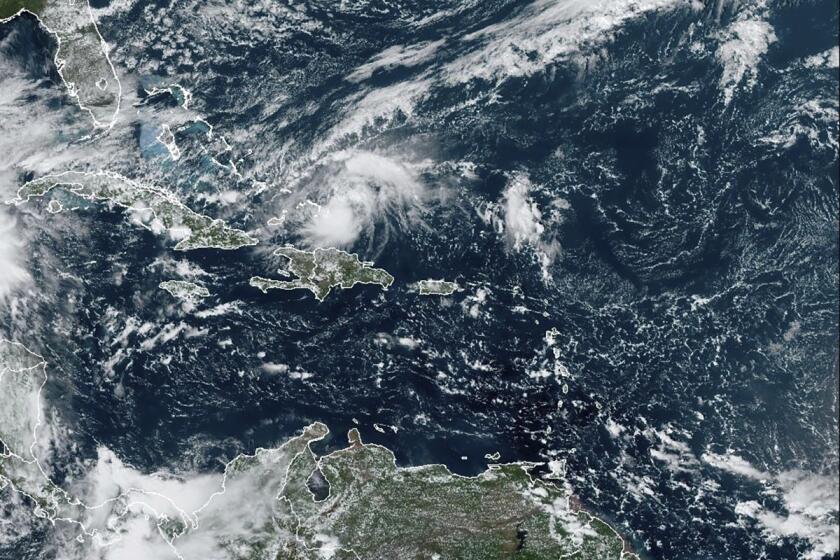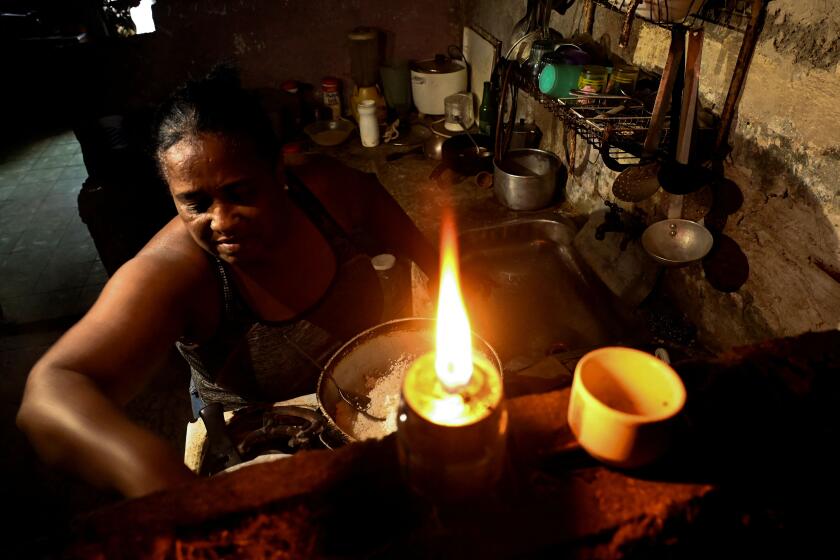Deadly storm strikes Cuba during lingering nationwide blackout

- Share via
HAVANA — A small town in far eastern Cuba was recovering Tuesday from flooding that killed at least six people after Hurricane Oscar crossed the island’s eastern coast as a tropical storm with winds and heavy rain.
Cuba’s capital was partially illuminated Monday night after a large-scale blackout generated a handful of protests and a stern government warning that any unrest would be punished.
President Miguel Díaz-Canel said on state television that rescue and recovery work continued in the town of San Antonio del Sur and officials had yet to enter some flooded areas.
“The country has completely halted,” said homemaker Mayde Quiñones, 55, who cares for her mother-in-law, who is in her 80s. “This hurts everyone, but the elderly most of all.”
Cuba’s electrical grid went down after one of the island’s major power plants failed, leaving millions without power.
The Cuban government has a low tolerance for civil disobedience and Díaz-Canel warned on national television Sunday that “we’re not going to allow any vandalism, or let anyone disturb people’s tranquility.”
The prolonged nationwide blackout that followed a massive outage Thursday night was part of countrywide energy problems that led to the largest protests in Cuba in almost 30 years, in July 2021. Those were followed by smaller local protests in October 2022 and March 2024.
All are part of a deep economic crisis that has prompted the exodus of more than half a million Cubans to the U.S., with thousands more heading to Europe.
The Cuban government and its allies blame the United States’ 62-year-old trade embargo on the island for its economic problems but White House Press Secretary Karine Jean-Pierre said Monday that the Cuban government’s “long-term mismanagement of its economic policy and resources has certainly increased the hardship of people in Cuba.”
Power remains relatively cheap but increasingly unavailable. The Cuban government on state television Monday night said that it’s producing 1300 megawatts when peak demand can hit 3 gigawatts. Authorities said by Monday afternoon that about 80% of Havana had intermittent power but people remained fearful.
Forecasters said 5 to 10 inches of rain are expected across eastern Cuba through Tuesday, with some isolated locations getting up to 15 inches.
“We have the fridge full of food and we’re scared,” said small-business owner Juan Estrada, 53, whose central Havana business hasn’t had consistent power since Friday morning.
Energy Minister Vicente de la O Levy said in a news conference he hoped that more reliable electricity would be restored by Tuesday morning but classes remained closed through at least Thursday.
He said that Oscar would bring “an additional inconvenience” to Cuba’s recovery since it would affect key Cuban power plants, such as Felton in the city of Holguín, and Renté in Santiago de Cuba.
Many of Havana’s 2 million people resorted to cooking with improvised wood stoves on the streets before their food went bad in refrigerators. People lined up to buy subsidized food, and few gas stations were open.
Hundreds of Cubans have taken to the streets in Havana demanding the restoration of electricity.
The failure of the Antonio Guiteras plant on Friday was the latest problem with energy distribution in a country where electricity has been restricted and rotated among different regions at different times.
The blackout was considered to be Cuba’s worst since Hurricane Ian hit the island as a Category 3 storm in 2022 and damaged power installations. It took days for the government to fix them.
Local authorities initially said the outage stemmed from increased demand from small- and medium-sized companies and residential air conditioners. Later, the blackout got worse because of breakdowns in old thermoelectric plants that haven’t been properly maintained, and the lack of fuel to operate some facilities.
Rodriguez and Duran write for the Associated Press. AP writer Josh Boak in Washington contributed to this report.
More to Read
Sign up for Essential California
The most important California stories and recommendations in your inbox every morning.
You may occasionally receive promotional content from the Los Angeles Times.












